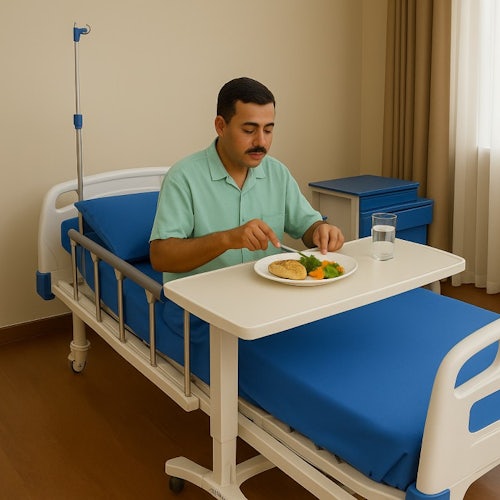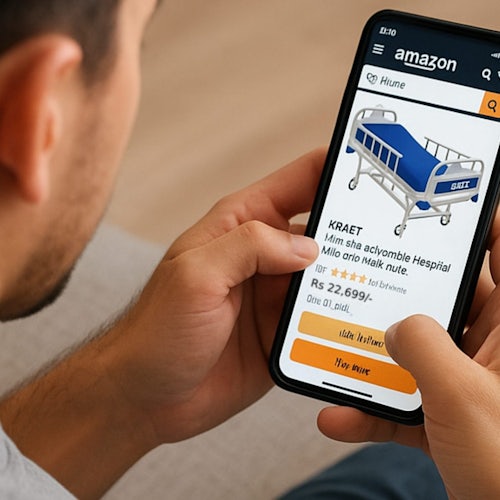How to stay safe and also free from anxiety in times of Corona Virus
If you switch on the T.V, pick up your newspaper or even scroll through your phone, the biggest news that you would see is how countries around the world are closing borders and putting citizens under lockdown in an attempt to contain the rapid spread of the new coronavirus outbreak, labelled a pandemic by the World Health Organization (WHO).
The WHO's declaration has increased pressure on governments to ramp up their response, sparking emergency action plans and upending life around the globe. It is very easy to fall into a depressive or anxious state, but remember, it is easier to deal with once you know the real facts.
Here's to know about the SARS-CoV-2 virus and the disease it causes, Covid-19
The WHO's declaration has increased pressure on governments to ramp up their response, sparking emergency action plans and upending life around the globe. It is very easy to fall into a depressive or anxious state, but remember, it is easier to deal with once you know the real facts.
Here's to know about the SARS-CoV-2 virus and the disease it causes, Covid-19
How to protect yourself
Wash your hands frequently and thoroughly with soap; cover your face with a tissue or your elbow when coughing or sneezing, and then throw the tissue in a waste bin; avoid touching your eyes, nose and mouth; clean surfaces and objects you touch often; seek medical attention if you have symptoms; and avoid direct contact with live animals in affected areas.
An increasing number of countries has advised people to self-quarantine for at least two weeks while also implementing a series of sweeping social distancing measures, including banning public gatherings and shutting down schools.
Social distancing to 'flatten the curve'
It is essential to maintain social distancing - including staying at least 1.8 metres (six feet) away from anyone who may be coughing or sneezing near you.
The aim of social distancing is to slow down the spread of the virus, giving the global health systems more time to care for patients who need help, which is also known as "flattening the curve".
Social distancing is most effective when the infection can be transmitted via droplet contact (coughing or sneezing), which is the case with the coronavirus.
Cancellations of public events that draw large crowds, such as sports events or music festivals, are an essential part of social distancing, but avoiding smaller gatherings is equally important.
Other examples of social distancing that allow you to avoid crowds or crowded spaces are working from home instead of at the office, closing schools or switching to online classes, and visiting loved ones via electronic devices instead of in person.
Symptoms to look for and who is most at risk
According to the WHO, the most common symptoms are fever, fatigue and a dry cough. Some patients may experience aches and pains, nasal congestion, a runny nose, sore throat or diarrhoea.
Current estimates of the incubation period - the amount of time between infection and the onset of symptoms - range from one to 14 days. Most infected people show symptoms within five to six days.
However, infected patients can also be asymptomatic, not displaying symptoms despite having the virus in their system.
The elderly, and those with underlying medical problems such as high blood pressure, heart problems or diabetes, are more likely to develop serious illness.
What to do if you think you caught the virus
A dedicated hotline has been set up in several countries for people who suspect they have been infected.
People in the country are asked to contact the hotline before going to a hospital, to avoid the possibility of spreading the virus in an unprepared healthcare facility or on the way there.
Individuals are required to contact specialised help as soon as they suspect they are ill, and to limit contact with others as much as possible.
To date, there is no vaccine and no medicine for COVID-19. While some traditional or home remedies can provide comfort and alleviate symptoms of the disease, there is no proof that existing medicine can prevent or cure it, according to the WHO.
How to prepare for self-quarantine or lockdown
At least 14 days are recommended for a self-quarantine, while the duration of a lockdown depends on the decision of a local government.
Given the likelihood that more and more people around the world will be house-bound, preparing one's home for that eventuality is an increasing concern.
Among the things being stocked are:
- Non-perishable foods, including shelf-stable beverages, sauces, pasta, pulses, rice, cereal, crackers, and dry goods, including tea, sugar, and coffee.
- Basic medical supplies, including over-the-counter medications to alleviate possible symptoms - which, in mild cases, have a lot in common with the symptoms of the common cold. Medicines for fever, congestion, and cough are recommended. It is also important to keep a one-month supply of prescription medication on hand as well in case getting to a pharmacy for a refill becomes difficult.
- Cleaning and hygiene supplies needed would include soaps for handwashing, bathing, laundry, and cleaning, as well as disinfectants to keep surfaces clean.
- Also important is preparing some activities that can be undertaken within the home, whether a list of books to read or an entertainment or exercise subscription that can be used without going out.








































